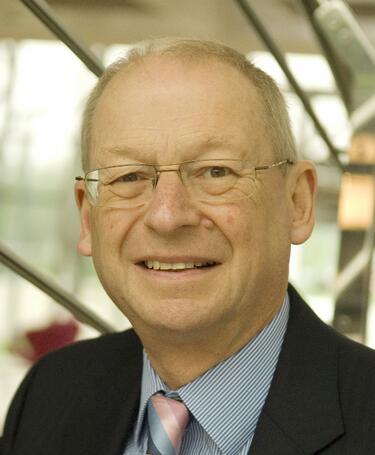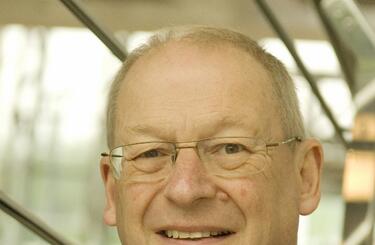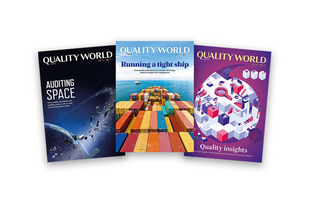
The changing face of excellence
Progress indicator

As David Teale stands down as CEO of North of England Excellence, he shares his knowledge of excellent organisations and the opportunities in the north.
"Quality professionals are champions of excellence – they mentor people who have to deliver services or make products. An important aspect of their role is advising on improvement and the governance of quality issues, two vital aspects of excellence."
David Teale has spent the last nine years in pursuit of excellence. As CEO of North of England Excellence (NoEE) he has worked with companies including Amec Foster Wheeler and Network Rail to improve competitiveness and productivity, while enhancing the Northern economy.
Excellence is big business and in the time since David became CEO techniques such as Lean Six Sigma have come to the forefront, while the 2008 recession has meant even the top organisations are more focused on defining their competitive edge.
Working as a CEO in an industry that is synonymous with quality takes a combination of vast experience at board level and an instinct for what makes organisations tick. As David stands down from his position, he shares his definition of excellence and what it means to achieve it.
How do you define excellence?
'I think excellence is about redefining standards and setting challenges to take business performance to new levels. To me quality means achieving defined standards, including stating the standards you’re going to achieve, and it covers specific things to measure specified areas. Excellence equates to every single thing a business does. It means creating higher standards to take business performance to new levels, pushing a business forwards and looking to the future.'
What role do quality professional play in the pursuit of excellence?
'The two concepts are interlinked. I see quality as the measurement of standards and deciding what we are going to do about an issue right now. Excellence is the next step, it means making sure the business is moving forwards in years to come.
'Quality professionals are champions of excellence – they mentor people who have to deliver services or make products. An important aspect of their role is advising on improvement and the governance of quality issues, two vital aspects of excellence.'
Has your view of excellence changed during your time at NoEE?
'The setting we operate in is constantly changing. The recession focused organisations in both the public and private sectors on value for money, efficiency and taking costs out of business. More and more people started using techniques such as Lean Six Sigma to enhance their companies.
'The one thing I have noticed is that people are the great differentiator in business. You can copy equipment, sales, marketing and pricing strategies but organisations that have invested in the skills, enthusiasm and commitment of their people and have empowered them to deliver great service or make great products are always going to be the strongest.'
How has the landscape changed since you joined NoEE?
‘The Northern Powerhouse’ (Chancellor George Osborne’s vision for the north) is going to create great opportunities across the region. The concept aims to address the north-south imbalance, attracting investment in infrastructure, such as the UK’s new high-speed rail networks (HS2 and HS3) and plans for the devolution of powers. It is intended to create a vibrant and growing economy in the north, maximising the potential of the region.
'This vision will present some big challenges for businesses because they will have to be more efficient. They now need to develop skills to grow and compete to access the best people.'
What are the standout excellence stories from your time at NoEE?
'In 2005, 30,000 homes were transferred from the local authority to a new organisation – Wakefield District Housing. The project emphasised improving the quality of people’s lives and creating communities people want to live in.
'The people in the business and the customers were used to the way the local authority worked and the new business had to transform itself to become entrepreneurial and customer orientated. It was an immense culture change and they were almost immediately faced with the challenge of meeting the requirements of the Government’s Decent Homes Standard.
'Wakefield used the EFQM model, which takes a holistic view of a business and identifies strengths to build on and areas for improvement. The model helped them to achieve improvement and they would review all aspects of their performance. As a result they won the North of England Excellence Award and they also won the UK Excellence Award after just five years of being in business, which is an amazing achievement.'
What do you think is the greatest lesson you learned while you were CEO?
'Across the north of England there are lots of great businesses in every sector and it has been an absolute privilege to help some of them to improve. The benefits of excellence go beyond the bottom line, it changes the attitudes of customers, the performance of people and helps develop sustainable business.
'The other thing I‘ve learnt is that sadly while there are lots of great businesses across the north who practice all this and demonstrate continuous improvement, there are still too many businesses that are not doing the right thing.'
Keep up-to-date with the latest research, insight and thinking on the biggest topics in the world of quality.
Member only

This article is free to access for a limited time only. Only CQI and IRCA members receive access to all content.
